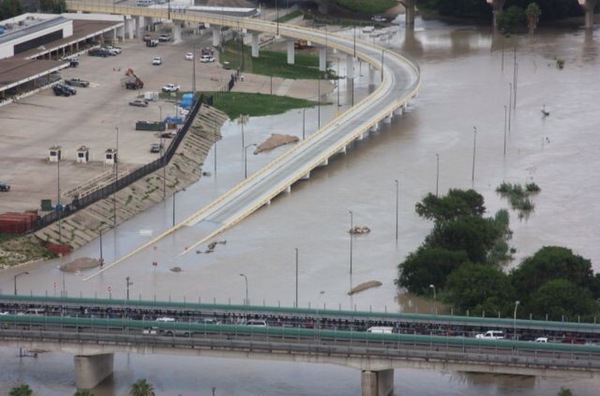The Threat
London rehearses scenarios and prepares itself for potential terrorist attacks. Events across the globe have meant that the authorities are reviewing our defence systems and ensuring that adequate responses are in place, and that we have resources that can be used in the event of a terrorist threat.
London is also preparing itself for the effects of global warming, a threat that’s potentially even more deadly to the city. The city needs to protect 35 underground stations, eight power stations, more than 1,000 electricity substations, 400 schools, 16 hospitals and over half a million of Greater London’s roughly 3.3 million homes from flooding, a potential disaster destroying homes, businesses, infrastructure and costing the taxpayer millions.
Many would say flooding has always been a part of London life but does the onset of global warming mean the threat is greater now?

Global warming – what will it do to the Thames?
Global warming is causing the earth’s temperature to rise, resulting in dramatic changes to our weather systems, and it has the potential to cause major flooding in London.
Winter rainfall is increasing, while heavier snowfalls and widespread floods are becoming increasingly common, and the London Climate Change Partnership predicts that winter rainfall figures will have increased by 30% by the year 2080. Sea levels are rising and rivers such as the Thames are rising at the rate of 3mm/year.
The Risk
Flooding in London could be caused if the Thames Barrier fails, and this could happen during a tidal surge. The barrier is having to be shut more frequently, and wear and tear on the structure is inevitable, resulting in reduced reliability if the barrier needs to be used as a flood defence system. The barrier was built in 1982 after many years of planning and with a projected lifespan of 50 years. 15 years from now, can we really assume the Barrier will continue to do its job?
The barrier is also affected by an increased flow of water in tributaries, which results in increased water into the channel and against the barrier. Intense rainfall in both summer and winter can result in additional city flooding when the drainage and sewer systems, which are sometimes privately managed, may not have the capacity to deal with the extra water.
What to do?
A six year assessment on the future of flood risk management was carried out by the Environment Agency. The results of the assessment were used to produce plans to build a new flood barrier outside of London near Dartford.
The assessments for the plan estimated that the current barrier will last until 2070, 40 years longer than originally thought. The TEI 2100 plan contains recommendations for actions that will need to be taken to manage increasing flood risk. The plan is in place to safeguard the Thames Estuary, the people, homes, buildings and businesses.
So although flooding is a major risk, global warming is happening, our climate and our environment are changing, it looks like the agencies governing flood management in London are working hard to ensure there are long term action plans in place to prevent and deal with flooding in the city.
Should the public be more worried about a major flood than a terrorist attack? Well, the simple answer is no – flood defences are in place, action plans and management systems are working and people, homes and businesses are as safe as they can be.
Fraser Ruthven is the Marketing Associate for London Drainage Facilities, one of London’s leading drainage companies. London Drainage provides a wide range of drainage diagnostic and repair services in and around capital.



